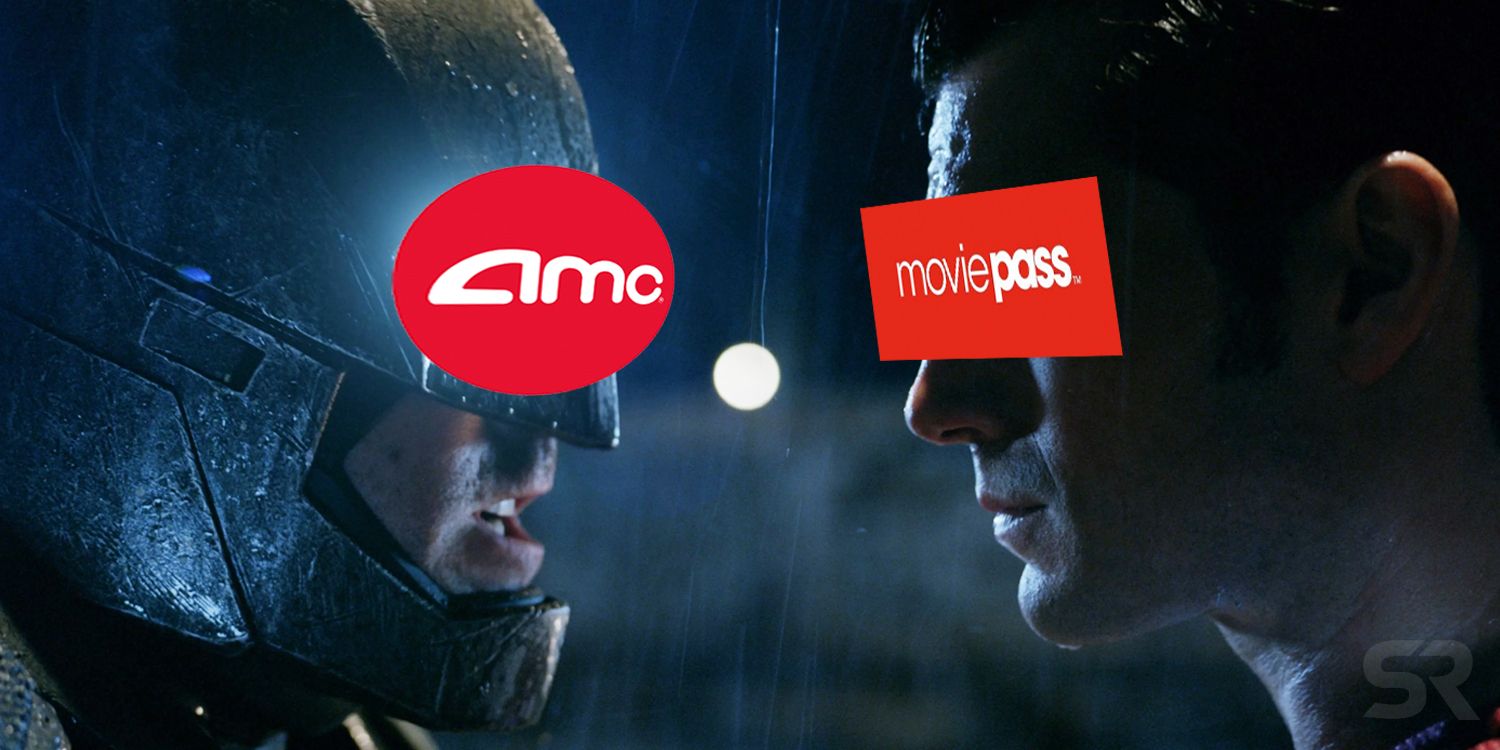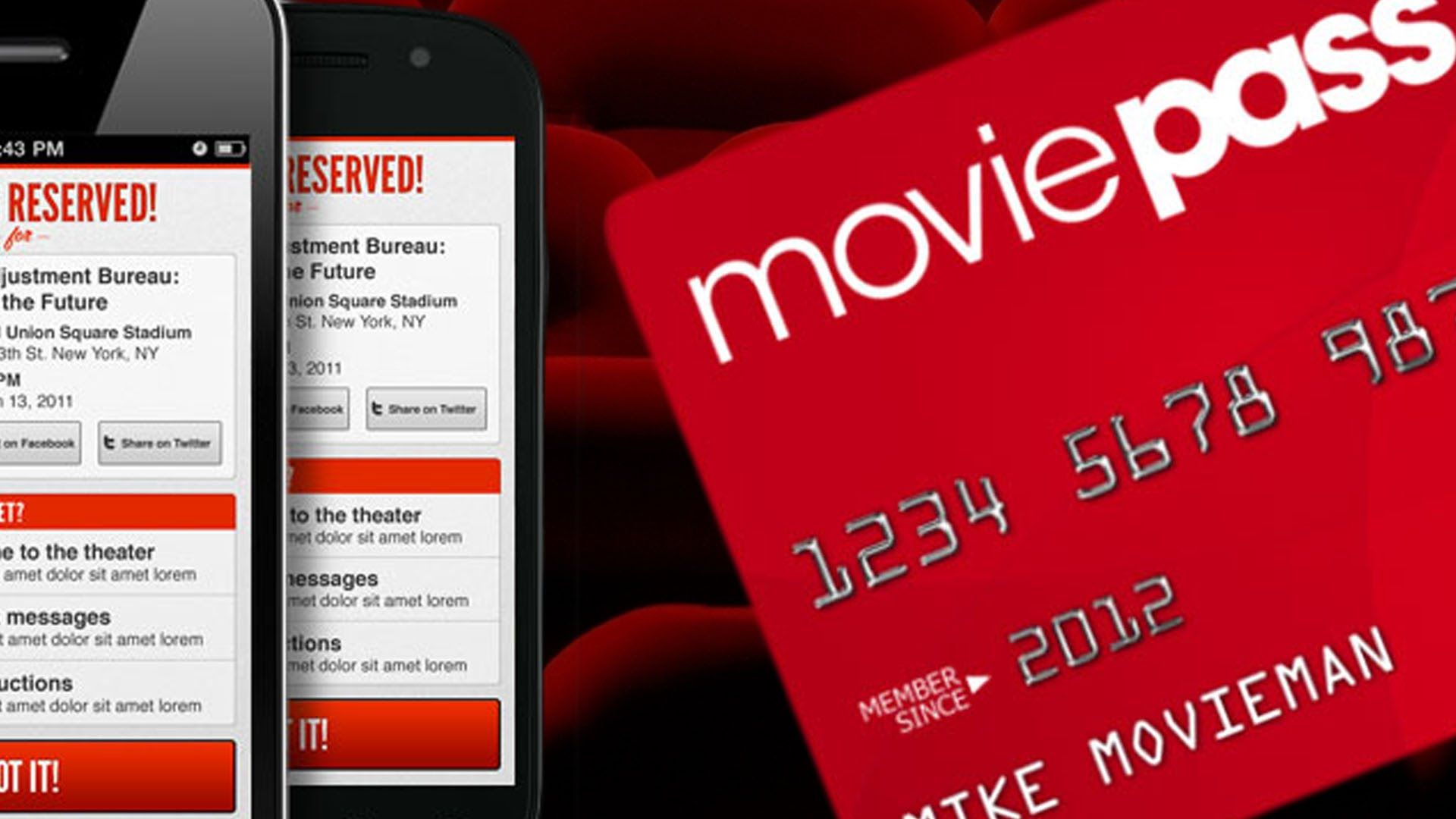MoviePass hoped to disrupt the theatrical experience with $10 a month unlimited movies, but their business model may be ruining the long-term future of cinema subscription deals.
When MoviePass announced their plans to drastically lower their subscription price to $10 a month, most experts wondered what the catch was. How do you create a viable business model by promising unlimited cinema visits - with some caveats - at such a low price? Hollywood didn’t prove to be too enthused with his disruption of the cinema-going experience either.
Related: Why Movie Theaters Do Not Want MoviePass To Succeed
And yet it's worked. The company has talked repeatedly of its rousing success since the price drop and the millions of loyal users, some of whom challenged themselves to see one movie a day. However, is everything as rosy and viable going into the future as it looks? With competition springing up in unexpected ways, perhaps not.
- This Page: MoviePass vs. AMC
- Page 2: Has MoviePass Outpriced The Market?
MoviePass’s Business Model is Messy
The MoviePass bubble is close to bursting and has been for many months now. In April, it was revealed that new subscribers would no longer be able to see one movie a day. The much-lauded $9.95 a month would allow for four tickets in as many weeks, which is still value for money but nowhere near the glorious deal originally offered. An upfront payment of $89.95 for a full year of unlimited access is also no longer available, and MoviePass CEO Mitch Lowe admitted that he didn't know if the unlimited plan would ever return. The plan eventually did, but no guarantee has been given that such changes will be permanent.
RELATED: MoviePass May Need To Change Strategy As Stock Plummets
MoviePass has always come with caveats, such as the inability for subscribers to see a movie more than once. New problems that have concerned users include the need to pay three months of fees upfront, with no guarantee that certain movies won't be impacted by the rule change regarding repeat viewings. Last week, to add further fuel to the fire, the company announced the introduction of price surging on films that are popular with subscribers, forcing an extra fee of £2 and upwards.
Add to that the questionable finances of the company, the fact that they lose staggering amounts of money on every deal, and a recent report that the company has deep ties to an Indian company accused of fraud, and it's no wonder people are waiting for the MoviePass dream to crash and burn. Now, competition is moving in and trying to beat MoviePass at their own game.
Is AMC’s A-List a Good Deal?
Cinema chain AMC has announced their own subscription plan, A-List. The plan will allow moviegoers to see three films a week for $19.95 a month, with no extra fees for IMAX or 3D. Users can also enjoy free popcorn and drink upgrades, no online ticketing fees, and the ability to skip queues at the ticket and concession stands. Unlike MoviePass, subscribers can choose to see their three films in one day, if desired.
In strict business terms, this is a solid deal from AMC. It’s a realistic model for the cinema chain and offers perks that MoviePass doesn’t as well as extra streams of revenue for themselves, such as the concessions deals. It also feels like a better fit for general moviegoers, who make up the majority of ticket-paying audiences. Of course, if you’re a MoviePass user, even if you’re irritated by the increasing rule changes, going from as many as 31 films a month for $10 to three a week for double the price may be a thorn in your side.
Going to the cinema has become increasingly expensive and less appealing to many film lovers. Why spend $20 on a ticket for one movie to sit in a crowded multiplex with people who won’t turn off their phones when you can get a Netflix subscription for less? Cinema attendance in America plummeted to new lows over the 2017 Summer season, and while there have been major hits this Summer, those box office heights aren’t what they used to be (see Deadpool 2 and Jurassic World: Fallen Kingdom making less than their predecessors in their opening weekends).
RELATED: Hollywood's Box Office Problems Are Its Own Fault
MoviePass wasn’t so much an investment for the general moviegoer as it was a lifeline for avid fans who go to the cinema far more than the average attendee. How does anyone say no to the possibility of a movie a day for less than $10? While that may not be a possibility anymore for new MoviePass users, it’s still hard to argue with paying less for getting more; four a month is more than enough for the average cinemagoer, who see only a handful of movies a year. Even if AMC’s deal is better, people like to stick with what they know.
With the announcement of A-List, a key factor is becoming clear: by out-pricing everyone else, MoviePass is making the subscription cinema deal an increasingly impossible market for American cinemas.
Page 2 of 2: Has MoviePass Outpriced The Market?
Britain Have Been Doing Cinema Subscriptions For Years
The confusion over the cinema subscription model in America has proven only more unusual to Brits, who have been used to unlimited movie deals for many years. Both Odeon and Cineworld, the dominant cinema chains in the country, offer fully unlimited deals from around £18 a month (about $24). These subscriptions also come with discounts on food, the ability to book tickets, and deals with major dining chains. The package is sold as an all-in-one night out for moviegoers: get your ticket, get your discounted snacks, then go out for a discounted meal. These subscription deals aren’t just good deals for movies; they’re full experiences.
While prices have increased with inflation, the British cinema subscription model has remained steady in popularity and cost efficiency. With the average 2D adult ticket costing around £10, depending on one’s location, a subscription offers the best in value for money, particularly if you live in a major city where prices are higher. Britain has had this model for a while now, and its reliable success makes the confusion and uncertainty surrounding MoviePass all the more baffling.
Crucially, though, it's considerably more expensive than MoviePass, which means that despite the near truth to the "unlimited" nature (customers can see as many movies as they want, with the only cap being on prebookings), it comes across as a less viable deal to many. A comparable offer to what Cineworld and Odeon do would struggle in the US by comparison to MoviePass.
What Next For the Cinema Subscription Model?
The battle now is between the big flashy appeal and the quieter but more sustainable long-term model. For now, it may be tough to get users to switch from MoviePass to A-List, simply because they’ll have to pay more. Eventually, however, it seems inevitable that MoviePass will either go away or drastically change their own model to reflect that of their competitors. That means fewer films a month, more fees or more caveats. And that will be hard to broach. Once you’ve set the bar at $10 a month for unlimited movies, everything else will struggle in comparison. General audiences will stick to what they know, and avid moviegoers will go where they get the most tickets for the least amount of money. A lot of fans may not care all that much about cheaper popcorn or discounted dinner deals, especially at the expense of the movie tickets themselves.
It shouldn’t be this difficult to develop a truly unlimited cinema subscription plan. Ultimately, this is a problem that runs deeper than the mere price of tickets. Theater owners are struggling to bring in attendees as competition gets tougher and the cinema experience less enjoyable. There is clearly a market for it and, as proven by the British cinema chains, it’s one that’s completely viable in the long-term.
Eventually, audiences loyal to MoviePass will have to realize how impossible that budget business model is. The barrier is that when they’ve so thoroughly priced everyone out the market, competition becomes impossible and the future for cinema subscription deals becomes ever murkier.





